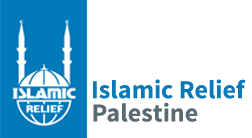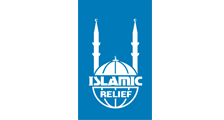Social Safety Net
IRPAL is committed to supporting the most vulnerable families affected by the deteriorated economic and social situation, who lack access to basic needs and live in deep poverty. SSN aims to contribute to the protection of the most vulnerable households and enhancing their wellbeing status by improving access to basic multi-dimensional needs and strengthening their resilience to respond to shocks, and cope with negative effects of the protracted humanitarian crisis in Gaza Strip.
The SSN is considered as a transition phase to post-emergency then development. Achieving better living standards for the targeted population, inevitably, will lead to a restoration of their sense of dignity, self-confidence and ownership thus develop their coping capacities with ensured food security. SSN interventions involve:
Food assistance

Almost 47% of all households are food insecure. Food insecurity in Gaza is essentially poverty‐driven, resulting from lack of economic access to food rather than lack of food in the markets.
Food insecurity has been exacerbated by massive displacement, destruction in the agriculture sector, lack of cooking gas, and fuel, and limited access to water.In regard to coping strategies, almost 92% of households in Gaza adopted at least one coping strategy. The most frequently cited strategy is the mild strategy of consuming fewer and less expensive items, used by 82% of the households. Next comes using credit to buy food, a severe coping mechanism which in Gaza is reported by two thirds of the households.
Social assistance

Identifying needs usually Highlights health and education needs as basics for life saving. They are prioritized also for their significance in protecting life and dignity of the poor and unprivileged communities.
Health services are provided in the shape of medical items for elderly, patients, and PWDs), while Education support is provided in the shape of remedial classes and fees for special cases.
Cash programming

Most households in Gaza can no longer live without external assistance, putting additional pressure on the social protection system. The UNOCHA estimates that 80% of Gazans are dependent on assistance to some degree.
The Project provides cash assistance for beneficiaries via integrating them in the Cash for Work Project, it is a short employment for graduates or workers with the aim to improve their food security. The Project also provides unconditional cash transfer in particular cases.
Shelter & NFIs

Housing condition is very vital and is reflected on all life aspects of a poor and marginalized family living in a poor conditioned house, so that housing units rehabilitation, is one of the basic interventions that is significant to improve the living and dignity of beneficiaries.
The project also provides basic non-food item as bedding kits, kitchen sets, plastic tanks, in order to achieve the required improvement.
IRPAL is mainstreaming protection and inclusion drawing on Gender Justice, child protection and GBV policies and practices, so that female headed households, families living in rented houses, with high number of dependents (children, elderly, PWDs), condition of the home and home ownership status, and families facing social protection threats are prioritized.







